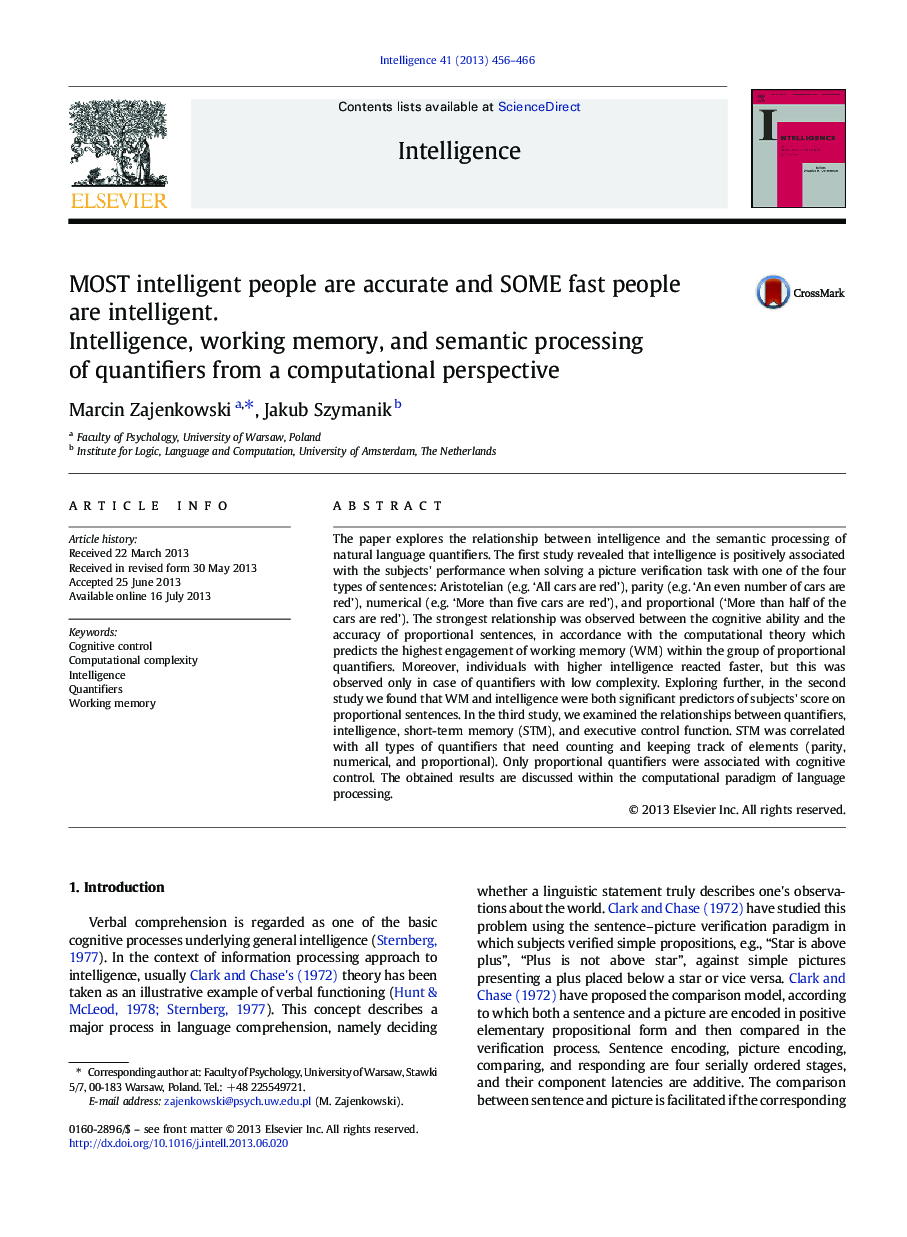| Article ID | Journal | Published Year | Pages | File Type |
|---|---|---|---|---|
| 10459405 | Intelligence | 2013 | 11 Pages |
Abstract
The paper explores the relationship between intelligence and the semantic processing of natural language quantifiers. The first study revealed that intelligence is positively associated with the subjects' performance when solving a picture verification task with one of the four types of sentences: Aristotelian (e.g. 'All cars are red'), parity (e.g. 'An even number of cars are red'), numerical (e.g. 'More than five cars are red'), and proportional ('More than half of the cars are red'). The strongest relationship was observed between the cognitive ability and the accuracy of proportional sentences, in accordance with the computational theory which predicts the highest engagement of working memory (WM) within the group of proportional quantifiers. Moreover, individuals with higher intelligence reacted faster, but this was observed only in case of quantifiers with low complexity. Exploring further, in the second study we found that WM and intelligence were both significant predictors of subjects' score on proportional sentences. In the third study, we examined the relationships between quantifiers, intelligence, short-term memory (STM), and executive control function. STM was correlated with all types of quantifiers that need counting and keeping track of elements (parity, numerical, and proportional). Only proportional quantifiers were associated with cognitive control. The obtained results are discussed within the computational paradigm of language processing.
Related Topics
Social Sciences and Humanities
Psychology
Experimental and Cognitive Psychology
Authors
Marcin Zajenkowski, Jakub Szymanik,
